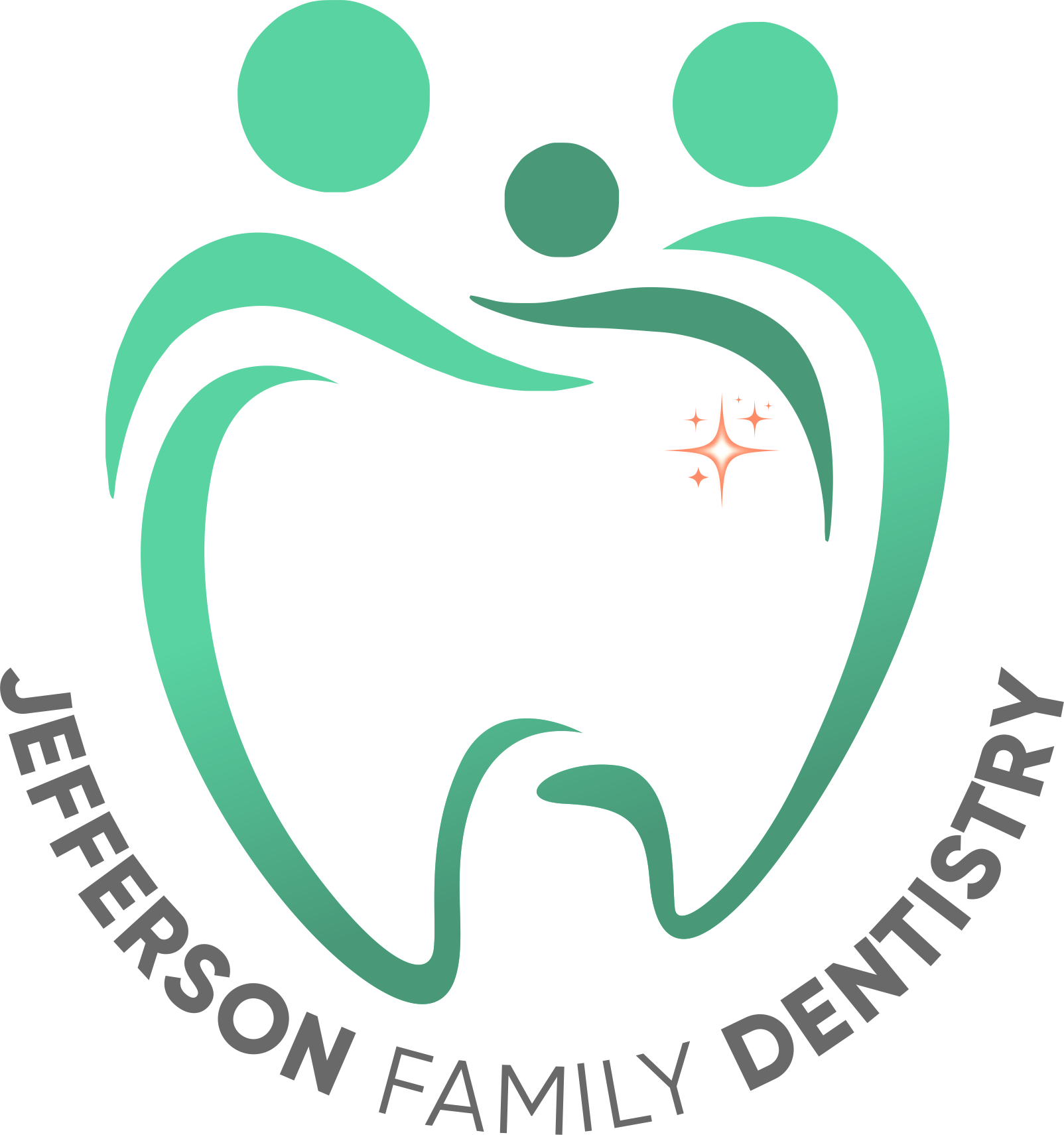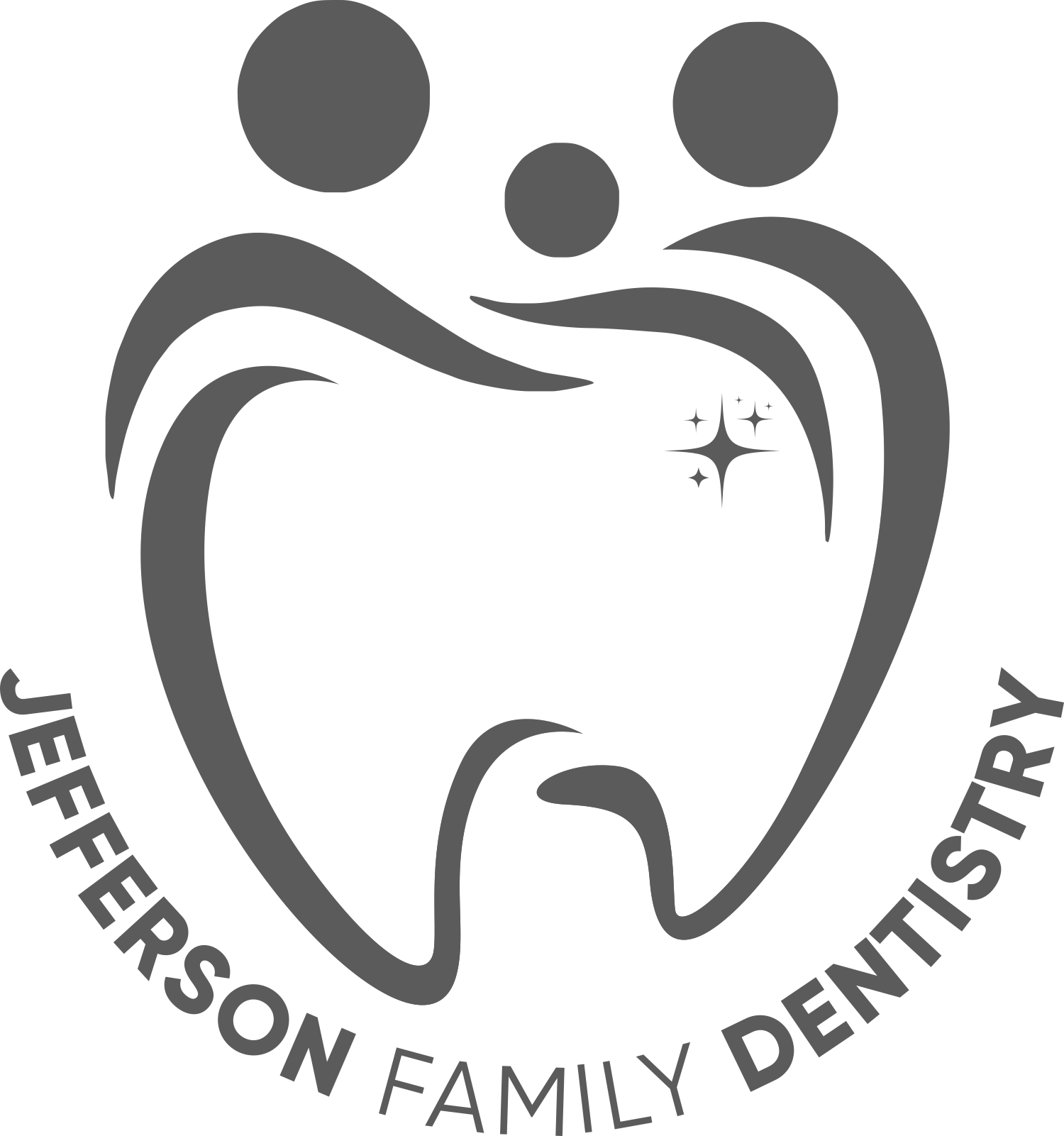JEFFERSon family Dental
Restorative Dentistry
Life experiences can sometimes impact the health and appearance of your smile. At Jefferson Family Dentistry, we offer a range of restorative dentistry services to address these concerns. We provide solutions such as fillings, crowns, bridges, dental implants, and implant-supported dentures, all designed to restore both function and aesthetics. Our approach prioritizes patient comfort and personalized treatment plans, ensuring you receive the care necessary to achieve a healthy and confident smile.
Crowns and Bridges
Dental crowns and bridges are dental restorations that are used to replace missing or damaged teeth. These restorations are common in dentistry and can help to restore the appearance, function, and health of your teeth.
What are Dental Crowns and Bridges?
Dental crowns are tooth-shaped caps that are placed over a damaged or weakened tooth to provide strength and protect it from further damage. Crowns are typically made of porcelain or ceramic, and they are designed to match the color and shape of your natural teeth.
Dental bridges, on the other hand, are used to replace one or more missing teeth. They consist of two dental crowns that are placed on the teeth on either side of the gap and an artificial tooth (or teeth) that is suspended between the two crowns. Bridges can be made from a variety of materials, including porcelain, ceramic, and metal alloys.
Single Implants
Single implants are used to replace one missing tooth. The implant is placed into the jawbone and allowed to fuse with the bone over a period of several months. Once the implant has fused with the bone, an abutment is attached to the implant, and a custom-made crown is placed on top. This creates a natural-looking, functional replacement tooth that is designed to last for many years.
Implant-Supported Bridges
Implant-supported bridges are used to replace several missing teeth in a row. The bridge is supported by two or more dental implants that are placed into the jawbone. The implants provide a stable anchor for the bridge, which is designed to look and function like natural teeth. Implant-supported bridges are a durable, long-lasting solution for those who have lost multiple teeth in a row.
Benefits of Dental Implants
Whether you need a single implant, full-mouth implants, or implant-supported bridges, dental implants offer a number of benefits, including improved appearance, restored function, durability, convenience, and preservation of the jawbone. If you are in need of dental restorations, talk to Sarwat Zaffer to see if dental implants are right for you.
Improved Appearance.
Dental implants are designed to look and feel natural, providing an aesthetically pleasing solution for missing teeth.
Restored Function.
Dental implants are designed to function like natural teeth, allowing patients to eat, speak, and smile with confidence.
Preservation of Jawbone.
Dental implants can help to preserve the jawbone and prevent bone loss, which can occur when teeth are missing.
Convenience.
Dental implants are a convenient solution for missing teeth, as they require only a few visits to Jefferson Family Dentistry to complete.
Durability.
Dental implants are durable and long-lasting, and with proper care, they can last a lifetime.
Prevention.
Dental implants can fill the gap and help maintain the proper alignment of your remaining teeth.
Dentures
Dentures are removable prosthetic devices that are used to replace missing teeth. They are a popular and effective dental service that can restore the appearance and function of a patient's teeth. Dentures are removable prosthetic devices that are designed to replace missing teeth. They are made from a combination of materials, including acrylic, porcelain, and resin. Dentures are custom-made for each patient and can be designed to look and function like natural teeth.
Root Canal Therapy
Root canal therapy is a specialized procedure designed to address infections or damage to the dental pulp, the soft tissue within your tooth. At Jefferson Family Dentistry, we understand that the thought of a root canal can be daunting, which is why we prioritize patient comfort and employ advanced techniques to ensure a smooth and effective treatment. Our goal is to save your natural tooth, alleviate pain, and restore your oral health, allowing you to maintain a healthy and functional smile for years to come.

